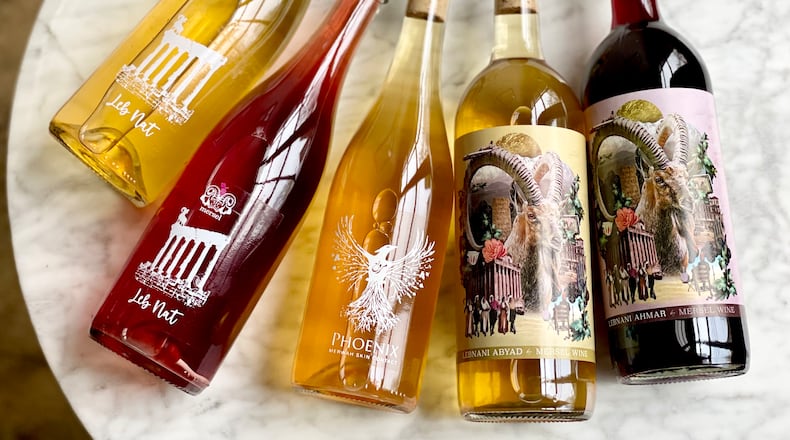It feels inevitable that, in the search for something new, we go back to the old.
Case in point: One of the most exciting wineries we’ve run across in some time is based in Lebanon, in one of the oldest winemaking regions in the world. Mersel Wine, led by charismatic winemaker Eddie Chami, is changing the landscape of Lebanese wine by returning to tradition.
New to the Atlanta market, Mersel’s offerings could be placed into the natural category, as low-intervention techniques are used (no chemical pesticides or herbicides) and the wine remains unfined and unfiltered.
The French influence is evident in contemporary Lebanese wine culture, due to the planting of grapes during the country’s occupation by France after World War I. Chami prefers to chart a distinct course, highlighting indigenous grapes, most notably merwah. The white grape is featured in blends, as well as used in a 100% merwah-based wine. Mersel’s merwah vines are more than 150 years old, giving us a taste of wine from the past.
Let’s look at some of the Mersel wines available for your spring or summer imbibing.
Made using ancestral methods — and better known by their French name, pét-nat — the sparkling wines of Mersel are particularly delicious. This style of sparkling wine has been trending for several years, but it is, in fact, the oldest method for making sparkling wine. The winery has given this series of wines the name Leb Nat. Mersel’s Leb Nat gold is an aromatic blend of merwah and viognier, and the Leb Nat rosé is a juicy combination of sangiovese and merwah.
Their Lebnani wines come in white and red, in a liter bottle (no secret, we love the liter). The white is a crisp, yet complex, blend of merwah and sauvignon blanc; the red is 100% cinsault, a French grape that has been used in Lebanese winemaking for more than a century. Juicy and spicy, it’s a great red for spring picnics.
Phoenix, meanwhile, is a skin-contact (aka orange) wine, made entirely from merwah. Fermented in stainless steel tanks and clay amphoras, it has a rounder texture, and smells and tastes of cantaloupe, spiced cider and orange zest. Named after the mythical bird that rose from the ashes — like the Lebanese capital, Beirut — it’s an appropriate moniker for a product of a wine region enjoying a renaissance.
Sign up for the AJC Food and Dining Newsletter
Read more stories like this by liking Atlanta Restaurant Scene on Facebook, following @ATLDiningNews on Twitter and @ajcdining on Instagram.
About the Author

